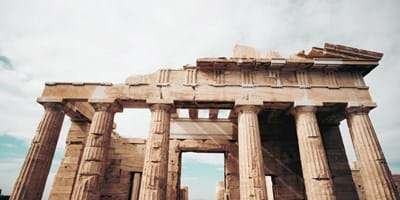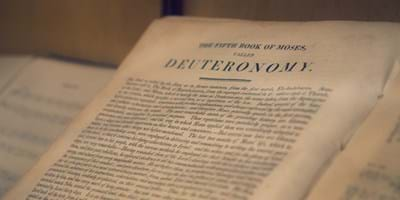He acknowledged that the Gospels get all the incidental details about Jewish customs, Palestinian geography and botany, names of first century Israelite people, weights and measures all correct, but, he said, that doesn’t mean that the stories are true. Just because the Gospel writers accurately recorded these things doesn’t mean we should believe them when they said Jesus fed 5,000, raised the dead and claimed to be the unique Son of God.
This is not really the point though. When New Testament historians point out the historical accuracy of the Gospel accounts in all these little details, they aren’t using that to show that the Gospel accounts are true; they are using it to show that the Gospel accounts are original, that is, the accounts in the Gospels are the accounts of the eyewitnesses.
The reason we can be sure of this is because when stories get passed from one generation to another, the main gist of the story is largely preserved and the incidental details (like names, places, geographical accuracy etc.) get corrupted. If the Gospel accounts are correct in the minor details, then it shows that there weren’t several steps between the events and the writings – such little details couldn’t / wouldn’t be so accurately preserved. This means the accounts came from the people who were on the scene. That means that when the Gospels say Jesus claimed deity or performed miracles, we can’t put this down to legendary development – it was the original story. Therefore, if they were wrong about what Jesus did and said, they were deliberately wrong – these followers of Jesus deliberately invented false claims and fake miracles about someone they knew was not the Messiah. Why any God-fearing Jew would ever dare to invent such a story has no adequate answer.
The man I was listening to went on to illustrate his point. He said he could write a story about a trip he had in London which had all the geographical details correct, but then he could include in the story that there was a massive explosion because of a gas leak. He said that a historian finding that document 2000 years from now could investigate records about London and find all the incidental details to be correct, but that doesn’t mean the explosion happened.
There are a few problems with his analogy.
First, this illustrates my point, not his. The level of detail shows the account came from someone who was very familiar with London, and the only way the story about the explosion could be false is because of deliberate lying. The apostles certainly weren’t liars.
Second, if our hypothetical future scholar found no corroborating evidence of a gas explosion it should make him wonder if it actually happened. If he only has one source, then he can be justifiably agnostic. But when it comes to the claims of Christ, His miracles and resurrection, we are not dependent on a single source. We have multiple, independent sources testifying to this.
Third, even if our hypothetical future scholar believed the story about the explosion, no one living at the time and place would have believed it. Such an invention could only fool future generations. This isn’t analogous to the details about Christ. The Christian message was proclaimed at the time and in the place where the alleged explosion happened. They weren’t interested in fooling future generations. They were writing and preaching to their own generation who could check their claims.
"The Christian message was proclaimed at the time and in the place where the alleged explosion happened. They weren’t interested in fooling future generations."
The fact that Christianity grew rapidly in, and spread widely from, Jerusalem is indisputable. There’s no doubt there was an “explosion” in Jerusalem following the death of Christ. The reverberations spread across the world and are still felt 2000 years later. What could have sparked such an evangelism explosion unlike anything seen before or since? Only the resurrection of Jesus Christ.
If the coming into existence of the Nazarenes, a phenomenon undeniably attested by the New Testament, rips a great hole in history, a hole the shape and size of the Resurrection, what does the secular historian propose to stop it up with?… the birth and rapid rise of the Christian Church… remain an unsolved enigma for any historian who refuses to take seriously the only explanation offered by the Church itself.
- C.F.D.Moule (Cambridge), The Phenomenon of the New Testament




























